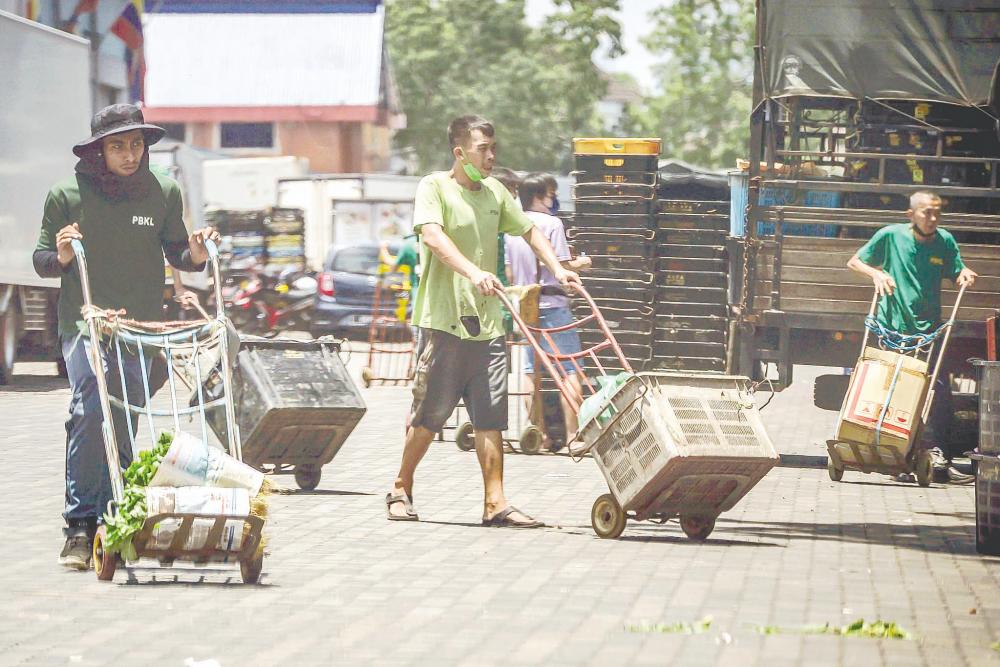PETALING JAYA: The 7,000-member Malaysian Employers Federation (MEF) has called on the government to urgently lift the freeze on new intakes of foreign workers “so that businesses can survive”.
“The current worker shortage is worsening and jeopardising the very
survival of businesses, especially SMEs,” said MEF president Datuk Dr Syed Hussain
Syed Husman.
He told theSun that the agriculture and plantation sector faces a shortage of about 230,000 workers, 300,000 in construction, 200,000 in manufacturing and 100,000 in the services sector.
On Nov 19, Home Minister Datuk Seri Saifuddin Nasution Ismail announced that the freeze on applications to hire foreign workers, in place since March 2023, would be maintained until at least the first quarter of 2025.
Syed Hussain warned that the worker shortage would only worsen if the freeze continues.
“Imagine this, we were previously allowed to replace foreign workers whose work permits expired or those who decided to return to their home countries. But now, it’s not allowed.
“While we support government policies aimed at improving work processes through automation, mechanisation, upskilling and reskilling of local workers via enhanced technical and vocational education and training and retraining, the fact remains that Malaysians are not keen to work in dirty, dangerous and difficult (3D) jobs.”
He added that even “clean” sectors such as electrical and electronics struggle to attract enough Malaysian workers, let alone 3D jobs involving hard labour and harsh weather conditions.
Syed Hussain pointed out that Malaysia’s unemployment rate in the third quarter of 2024 stood at 3.2%, involving about 530,000 individuals.
“If Malaysians do not change their mindsets, no amount of improvement in other areas will attract them to 3D jobs.”
He stressed that foreign workers significantly contribute to the country’s economy, citing World Bank data that suggests a 10% net increase in manual or “low-skilled” foreign workers could boost Malaysia’s GDP by up to 1.1%, or RM19.48 billion.
“Without foreign workers serving the understaffed sectors, businesses and the national economy will face severe challenges. Singapore understands this and allows employers the flexibility to engage foreign labour.
“Although our economic challenges differ, their government’s practical approach to labour shortages is worth considering. We need to re-evaluate our foreign worker freeze and address how to encourage Malaysians to take up these roles.”
Syed Hussain highlighted the challenges faced in Johor, where many youths gain experience in the service industry but later move to Singapore for higher wages.
“This trend will continue because of the higher exchange rate of the Singapore dollar. The suggestion that we should increase our salaries to match Singapore’s to retain workers sounds good but is unrealistic.
“Higher wages would lead to increased hotel room and service rates in Johor. With profit margins already shrinking, such proposals are not feasible.”
He also said allowing Johor to hire foreign workers is the only viable option to alleviate pressure on the state’s economy, which has strong potential to grow its domestic GDP.
“MEF supports special measures for Johor to address the shortage of foreign workers, especially in service-level jobs. At senior levels, adopting artificial intelligence and the latest technologies can make businesses more competitive.”
Syed Hussain criticised philosophical debates over foreign worker policies as ineffective.
“There is an urgent need for workers in 3D sectors. We cannot wait for policymakers to get real.
“The freeze on foreign workers must be lifted immediately to prevent further damage to the national economy.”









